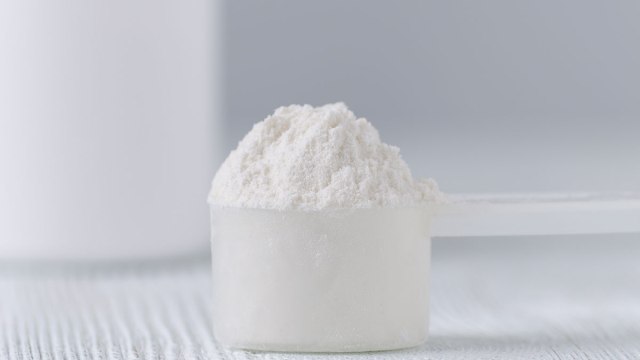It may surprise you, but according to the US Department of Health and Human Services, between 60-70 million Americans suffer from one or more gastrointestinal (GI) tract conditions or disorders. And with more and more research coming out about how much your gut health impacts your overall health, you may be looking for ways to improve it.
Besides boosting your fiber by making adjustments to your diet or cutting out unhealthy lifestyle habits, you may be interested in a supplement to give your digestive system some extra support.
But not all supplements are created equal. When buying supplements, it is important to seek out a reputable brand that emphasizes testing.
“Some factors that can help you determine that a brand is reputable include the company’s commitment to conducting clinical research and whether the company has received any independent 3rd party certifications, such as from NSF,” says Keri Gans, MS, RDN, CDN, registered dietitian nutritionist in New York City. “NSF certified tests for harmful levels of contaminants and confirms that the supplement contains the ingredients listed on the label.”
1 Probiotics

First, you should know exactly what probiotics are.
“Probiotics are live microorganisms that may help to rebalance your microbiome and can be thought of as the ‘workers’ in our gut,” says Gans.
And they benefit your gut in a plethora of ways.
“Probiotics have been shown to help digestion, support your immune system, decrease inflammation and so much more,” says Bonnie Taub-Dix, MA, RDN, CDN, author of Read It Before You Eat It—Taking You From Label to Table.
2 Postbiotics

“Postbiotics are the metabolites made by beneficial microorganisms; in other words, the end result,” says Gans. “Creating metabolites (postbiotics) are one of the main outcomes from the metabolism of prebiotics (specialized plant fibers that are the ‘fuel’, aka food, for probiotics). and probiotics. Postbiotics may help support both gut health and immunity.”
Research on postbiotics has shown that they can help adjust your microbiome and support gut health.
3 Omega-3’s

“Omega 3 fatty acids, such as EPA and DHA have been shown to provide benefits throughout one’s life,” says Sylvia E Klinger, DBA, MS, RD, CPT, registered dietitian and owner of Hispanic Food Communications. “Specifically, omega 3 fatty acids can be beneficial to those who are constipated because it serves as a lubricant in the intestine as well as an anti-inflammatory agent.”
4 L-Glutamine

L-Glutamine is also a great supplement to take for gut health. Specifically, it has been found to boost immune cell activity and reduce inflammation in the gut, notes registered dietitian nutritionist Andrea Grange, RD, with IdealFit.
5 Vitamin D

“Besides helping you maintain strong bones and teeth, supporting the immune system, nervous system, lung health, and cardiovascular health, vitamin D is also good for the digestive system,” says Klinger.
Adds Taub-Dix, “Vitamin D plays an important role in keeping your digestive tract healthy since it has been shown to increase the microbes in your gut and it has been shown to decrease inflammation for those who have digestive issues.”
Studies have found that it is especially for those with irritable bowel syndrome because it increases in bacterial richness, which in turn helps ease up symptoms of IBS.
6 B-Complex

“B-Complex refers to not just one vitamin but MANY vitamins all of which fit into the category of ‘B-complex’ (e.g. B1, B2, B3, B6, B12 and Biotin),” says Grange. “Different B vitamins play different roles in the gut, but many B vitamins contribute to making sure that our gut can properly break down and use the food that we eat.”
7 Vitamin C

“Most people don’t think about how digestion starts in the mouth,” notes Taub-Dix. “Vitamin C helps support healthy gums and teeth and it also enhances the absorption of iron, another essential nutrient to support gut health.”
8 Magnesium

“Magnesium is the fourth most abundant mineral in our body,” says Taub-Dix. “Magnesium improves digestion because it plays its role as an enzyme to metabolize protein, carbohydrates, and fat.”
She notes that different magnesium supplements can also be used to treat digestive symptoms such as heartburn, indigestion, and constipation.





